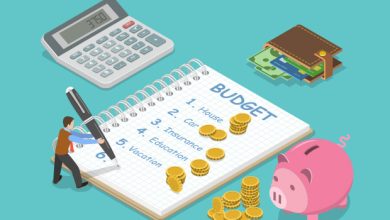How to Improve Your Creditworthines
Creditworthiness is a measure of how likely you are to repay a loan. It is based on your credit history, which includes information about your past borrowing and repayment behavior. A good credit score, which is a numerical representation of your creditworthiness, can help you qualify for loans and credit cards at competitive interest rates.
Tips to Improve Your Creditworthiness
Here are some tips on how to improve your creditworthiness:
- Pay your bills on time. This is the most important factor in your credit score. Even one late payment can have a negative impact, so make sure to set up automatic payments or reminders to help you stay on top of your dues.
- Keep your credit utilization low. Your credit utilization is the amount of credit you’re using compared to your total available credit. It’s generally recommended to keep your credit utilization below 30%. This means if you have a total credit limit of $10,000, you should keep your balances below $3,000.
- Don’t open too many new accounts at once. Opening too many new accounts in a short period of time can generate hard inquiries on your credit report, which can temporarily lower your score. It’s best to only open new accounts when you need them.
- Have a mix of credit accounts. Having a mix of credit accounts, such as a credit card and a loan, can help improve your credit score. This shows lenders that you can handle different types of credit responsibly.
- Keep your credit history long. The longer your credit history, the better. Avoid closing old accounts, even if you don’t use them often.
Additional Tips
Here are some additional tips:
- Become an authorized user on a credit card. If you have a family member or friend with good credit, you can ask them to add you as an authorized user on their credit card. This can help you build a credit history without having to open your own account.
- Get a secured credit card. A secured credit card is a type of credit card that requires a deposit. The deposit is used as collateral in case you default on your payments. Secured credit cards can be a good option for people with bad or no credit history.
- Pay down your debt. The less debt you have, the better your credit score will be. Try to pay down your debt as quickly as possible, especially any high-interest debt.
FAQs
Q: How long does it take to improve my creditworthiness?
A: The amount of time it takes to improve your creditworthiness will vary depending on your individual circumstances. However, you should start to see improvement within a few months of taking steps to improve your credit habits.
Q: What is the best way to check my creditworthiness?
A: There are a few ways to check your creditworthiness. You can get a free copy of your credit report from each of the three major credit bureaus (Equifax, Experian, and TransUnion) once a year at AnnualCreditReport.com. You can also sign up for a credit monitoring service, which will track your credit score and alert you to any changes.
Q: What should I do if I have bad credit?
A: If you have bad credit, there are a number of things you can do to improve your creditworthiness. The most important thing is to start paying your bills on time and keeping your credit utilization low. You may also want to consider getting a secured credit card or becoming an authorized user on a credit card with good credit.
Improving your creditworthiness takes time and effort, but it’s worth it in the long run. A good credit score can help you qualify for loans and credit cards at competitive interest rates, which can save you money.




